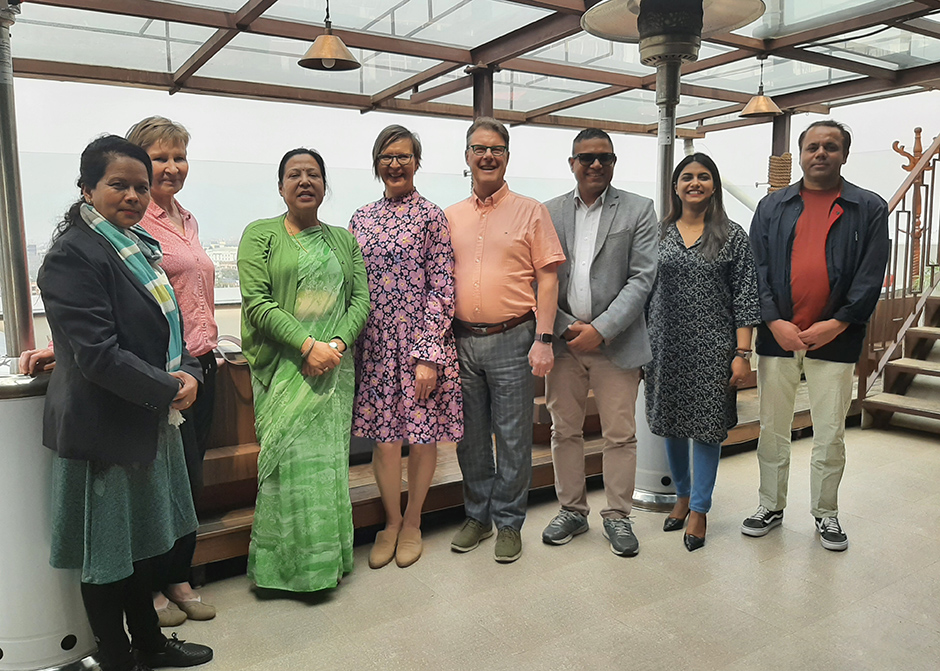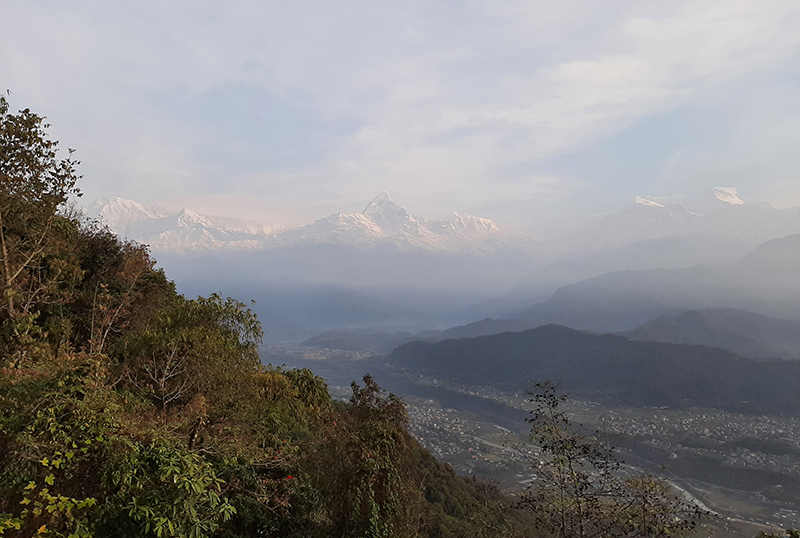Internal course evaluation and students’ guidance in Nepal

A group of staff members from the School of Professional Teacher Education at Jamk University of Applied Sciences travelled to Nepal to continue the work in our international project. During the two-week programme, we focused on exploring and analysing the newly developed online courses and finding out how students’ guidance and counselling aspects have been developed.
Internal course evaluation
Work in developing the implementation for the new Master’s programme on Pedagogy for 21st Century Skills in Nepal is progressing well. The curricula will be implemented by 16 new online courses that have been developed in Tribhuvan University and Nepal Open University. These online courses are aimed at enhancing Nepalese teachers’ digital competency and broadening their views on the need for 21st century skills.
The creation of the online courses is made within Output 1 that operates the entire project time and focuses on digital skills, digital pedagogy, and critical thinking. In March 2023, all 16 courses were internally evaluated by the Finnish project partners in a process which was based on reflective discussions. For each course developer ( 8 from Nepal Open University and 8 from Tribhuvan University) a specific time of an hour and a half was devoted for discussion with a Finnish co-creator.
The courses were analysed within a holistic framework looking at four main perspectives; students, course structure, teachers and organisation. The elements related to each perspective are explained in the Table 1 below.
Table 1: Elements of the internal evaluation in each perspective.
| Students | Course | Teachers | Organisation /university |
| Flexibility to complete the course. Timetable issues. Participation and interaction. Students’ digital skills and prior knowledge. | Clearly written expectations and learning objectives. Design of learning tasks. Use of diverse learning material. Clarity throughout the course. Accessibility and diversity aspects considered. | Design of learning process and pedagogical solutions. Regular interaction online and students’ guidance. Appropriate feedback and continuous, formative assessment for learning. Use of different assessment methods. Teachers updating their pedagogical and technical skills. | Organisational support to teachers and students. Develops quality criteria for online learning. Offers processes and resources to enhance teachers’ work. Follows trends of pedagogical and technological development. |
Each element was discussed with the course developer and comments were made in an online document. That document is meant to be used as a guideline and will be updated by the developers as the courses have started. In general, the courses were appropriately designed, however, as in all course creations, updates and changes are required when experiences have been gathered from the students. Nepal Open University will start six of their courses in March 2023 and the remaining in the following semester. Tribhuvan University will start their courses in the new semester after summer 2023.
First feedback of students’ experiences will be collected from the Nepal Open University courses at the end of the semester. We all in both Nepal and Finland are looking forward to getting the initial feedback of the courses.
Students’ guidance and counselling
Another big entity that we have been working on together with our Nepalese colleagues is Output 2, increasing and developing (study) guidance skills. This package consists of three separate parts: a three-credit in-service training course for teachers, a training manual for trainers, and a MOOC course on the key concepts and content areas of guidance.
At the workshop in Nepal in March 2023, we finalized a continuing education course and a training guide. Our Nepalese partners have worked hard to think about what the essential contents from their point of view are, their culture and the diverse operating environments in which teachers work. In principle, guidance and counselling are completely new concepts and phenomenon for many teachers, but the need for them does not need to be justified very much: students’ support and guidance, as well as equal educational paths require to be developed. However, the work is not easy in a country with countless ethnic groups, languages and even geographically challenging regions. During spring 2023, the training will be piloted, and in the future it will be interesting to hear what kind of experiences our local colleagues get and how they further develop their course based on the feedback and experiences they have received.
The development of the MOOC in guidance and counselling is still in its early stages. The contents exist but the implementation requires a lot of tinkering and consideration, especially since the authors have no previous experience of creating such content: What kind of competence is sought? What kind of tasks support learning? How can the challenges caused by partially deficient infrastructure be overcome? These and other questions that come up will have to be answered by the course developers in the coming months.
In the main photo on top of the article there are some course developers in Kathmandu.
Authors:
Eila Burns, Senior Researcher
Seija Koskela, Senior Lecturer
Jamk University of Applied Sciences
Photos: Eila Burns
Read more:
More information about the Developing Pedagogy for 21st Century Skills in Nepal from the website: Developing Pedagogy for 21st Century Skills
